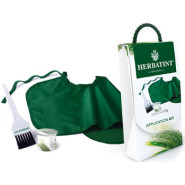- Home >
- A. Vogel Biosnacky Broccoli Rapini Sprouting Seeds - 30g - Bioforce
Biosnacky Broccoli Rapini Sprouting Seeds - 30g - Bioforce

We're sorry, we no longer carry this item.
Check These out
Suggested, Similar, & Related Products:

Sale: $7.99
Reg.: $9.99 (Save $2.00)

Sale: $59.99
Reg.: $74.99 (Save $15.00)
(Click Add to Select Bonus)


Sale: $9.99
Reg.: $12.99 (Save $3.00)

Sale: $7.99
Reg.: $8.99 (Save $1.00)

Sale: $38.69
Reg.: $42.99 (Save $4.30)

Sale: $44.99
Reg.: $49.99 (Save $5.00)

Sale: $51.29
Reg.: $56.99 (Save $5.70)

Sale: $4.99
Reg.: $9.99 (Save $5.00)
Or, Shop our Latest Deals:
Shop Now >Format
 Seeds
Seeds
30g
Dosage
Before sowing, rinse thoroughly in fresh water. Amount per tray / jar: 1 tablespoons of seeds Temperature: 18 – 22oC Water: Twice daily Ready to eat: After approximately 4 to 6 days
Important Information
Non-Treated, Additive Free, GMO Free. BioSnacky seeds are 100% organic and checked thoroughly for their ability to germinate before packaging. Though, in some rare cases the ability to germinate may be limited due to transport or improper storage. Due to the seeds being natural they are subject to natural life process.
- Mild and aromatic taste
- 100% Organic Seeds
- GMO-Free
- Non-Treated And Additive-Free
- Helpful in maintaining a healthy circulatory system
Related Videos
No Related VideosRelated Articles
Articles by a naturopathic doctor.
A.Vogel, top formulators of Swiss-made herbal health products and Canada’s best-selling Cold & Flu support. A Vogel products include Echinaforce and the best menopausal women's supplement, Menoforce. Now they bring to you A.Vogel Allergy Relief, Pollinosan complex as well as their classic Biostrath Elixir, arnica gel for topical pain relief and natural eye drops. Buy now at National Nutrition.
Sprouting
What is Sprouting?
Sprouting is the process of soaking, draining and then rinsing seeds at regular intervals until they germinate or "sprout". Sprouting can be done commercially, or in the privacy of your own home quite easily. Common beans for sprouting include mung beans, alfalfa, chickpeas, barley, lentils and azuki beans.
What are some benefits of sprouting?
Very simply put, sprouts offer the highest amount and quality of vitamins, minerals, proteins, fibre and enzymes per unit of calorie. Among its many nutritional claims, sprouting is shown to increase the content of B vitamins, vitamin E and A. Some argue they are the most nutritious food we can eat. As sprouting or germination occurs, the seed is transformed into only essential content, while the nutritionally undesirable content is broken down, producing energy or power to change from seed to sprout. In this case, the protein or amino acid content is increased as a seed becomes a sprout, while the carbohydrate content is decreased or broken down to provide the seed with the energy to grow.
Sprouts are a living food, they continue to gain in vitamin and nutritional content even after they are harvested and to a certain extent when refrigerated. Compare that to store bought vegetables which start to lose nutritional content as soon as they are picked, and at times long before they arrive at the store. As an added benefit, sprouts are very easily assimilated and digested, while improving the overall efficiency of digestion. This is particularly important in the case of protein, which often requires more work to digest. Sprouting significantly increases the protein content of many beans, while making it one of the easiest forms of protein to digest.
A study conducted on Salba®, a specific brand of Chia, found that 3.5 oz of Salba® contained as much omega 3 as 28 oz of salmon, as much calcium as 3 cups of milk, and as much iron as 5 cups of raw spinach. Chia is also gluten-free, a bonus for those with gluten sensitivities who have a hard time increasing fibre consumption. All that nutrition and it's also low in calories.
How to do it yourself!
The most important tip when sprouting is to make sure that the container you choose to use allows water to drain from it. A jar with a mesh or cheesecloth top works well. If the sprouts are not drained in the recommended time and allowed to sit in the water, they will quickly rot. Each seed has slightly varied soaking and sprouting schedules, but in general, you want to initially soak the seeds (in the case of mung beans, you soak for anywhere from 8-14 hours), then drain the seeds and let them sit. Rinse and drain the beans 2-3 times/day until the beans have sprouted. (Mung beans only take about 1 day to sprout.). You may put them in the fridge to prevent rotting once sprouted for a maximum of two days. If not used within three days, the seeds usually go sour. As with most things, the fresher the better, so try to eat your sprouts as soon as they are ready – add them to your salad, or make a live granola with sprouts, soaked nuts, and dried fruits.
Sprouting is not dependent on weather or time of year. Sprouts can be grown from January to December. Sprouting does not work well in full sun, as the seeds tend to dry out. A window sill with indirect sun is the perfect spot to sprout. Mung beans can actually be grown in the dark, although it has been reported they lose some of their nutritional value.
- Reviews
- POST A NEW REVIEW
Tell everyone what you think about this item!















